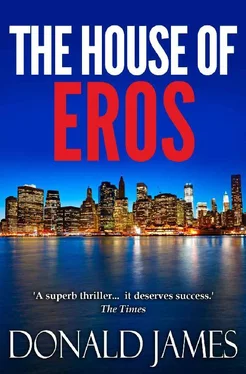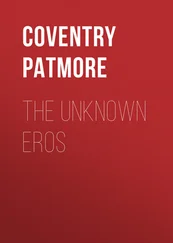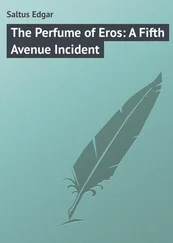He pulled the brass knob of one of the drawers. A small photographic album lay inside. Visits to the Cote d’Azur, 1970-75. A letter in a flowing hand regretted her decision not to have lunch with him at the Negresco. It was signed, Paul. Max replaced the letter in the album. He knew he would have to do it some day but he had no relish for delving into the lost opportunities in his mother’s life.
He pushed the slender drawer closed and pulled open the main central drawer. A framed picture of his father looked up at him, in crude hand-painted colour, a lean face with a wry smile on the lips beneath a red French para’s beret. Max put the framed picture aside. Underneath there were letters tied with blue tape, yellow military documents in French.
‘Excuse me, sir.’ Max turned to find one of the maids in the doorway. ‘Did you call for a cab?’
Max thanked her, pushed the centre drawer and slid home the runners to close the hinged top lid. At the last moment he hesitated. Opening the drawer again he took out the packet of letters and documents beneath the framed photograph. Closing up the desk and locking it, he put the papers in his briefcase, picked up his coat and duffel bag and left to catch the plane to New York.
* * *
‘Meet me,’ Cy said on the phone, ‘at the motel at nine this evening.’
‘I’ll be there.’ Louise Cartwright’s voice was low, barely above a whisper.
‘You’re sure you can find it? About an hour’s drive from the city.’
‘I can find it.’
‘What about your husband? Won’t he wonder where you are?’
She glanced up the stairs and moved the phone to the other ear. ‘He’s on shift tonight,’ she said. ‘He’s sleeping now.’
‘OK, Louise,’ Cy said. ‘I’ll see you later. In the meantime I’ll do a lot of thinking.’
Louise hung up and went into the kitchen. With methodical, unthinking movements she prepared French fries, peppered a steak from the refrigerator and made salad. At six o’clock she woke her husband, Ben, and went downstairs again. She had just finished cooking as he came down showered and crisp in his uniform. ‘That was a really great sleep,’ he said. It was what he said every day. There were few worries to trouble the big, good-natured Irishman with the red hair and very pale, blue eyes.
Louise moved silently about the kitchen while he ate and talked about work and the chances of promotion to a desk job in narcotics.
When he had finished he stood up and put an arm round her. ‘What is it?’ he asked. ‘You’ve hardly said a word.’
‘You were talking too much,’ she said lightly. ‘Anyway, I was interested.’
He nodded, not believing her. ‘Nothing you want to say to me?’
She hesitated. She felt an intense urge to tell him. Not by any means everything. Just a hint at some sort of past in Saigon before he came on the scene. But she knew, in parallel with the thought, that it would be immensely dangerous. He was a cop. By temperament and training he would want the whole story.
He raised his pale eyebrows towards her. ‘We talk, remember?’ he said. ‘When we have a problem, we talk.’
‘It’s work,’ she said finally. ‘Every day, so many ruined kids, so many broken people. My own people. Sometimes it gets to you.’
‘It gets to you that much,’ he said, ‘maybe it’s time to change jobs.’
‘No.’ She walked out into the hall and came back with his cap and belt. ‘Just sometimes I feel so lucky to have you. And all this.’
‘It’s no palace,’ he said. ‘It’s the Bronx.’
‘Almost Riverdale. And I’m very happy here,’ Louise said firmly.
He held her face in both hands. ‘You have a strange way of showing it, sometimes.’
‘Go to work,’ she said, forcing a smile. ‘Catch criminals. Clean up New York.’
‘I asked you to come,’ Louise said, across a corner table in the Palermo Luncheonette, ‘because I have something to tell you.’
Nan Luc waited until Mai Bassano had put two cups of coffee on the table and passed a few words with Louise. The excitement building inside her was almost suffocating. As soon as Mai had turned away she leaned forward towards Louise. ‘Before you tell me anything,’ she said to Louise, ‘I want you to know I understand what your new life means to you in America. The past is safe with me.’
‘Just listen to what I have to tell you,’ Louise said.
The chill in her tone was clearly conveyed to Nan Luc. Whatever she was about to say, Nan Luc knew, was with reluctance, under some form of duress. Or possibly even a construction, a red herring to lead her away from her father. Tense, slightly sick to her stomach, Nan Luc waited.
‘In the last days before the evacuation,’ Louise said, ‘everybody was desperate to leave Saigon. There were rumours of massacres, mass rapes, robbing and pillaging.’
‘I can believe that,’ Nan Luc said, instead it was poverty, hunger.’
‘In the spring of 1975,’ Louise said, ‘everybody used whatever money and influence they had to get a plane out.’ She paused. ‘Your mother guessed what the new world would be. She understood that a child like you, half Vietnamese, half American could only expect a life of deprivation.’
‘Did she talk about these things?’
Louise nodded. ‘We ail recognised she was not like us. She could have worked the bars for hundreds of dollars a week. But she preferred working in a field hospital. Your grandmother thought she was mad.’
‘I can imagine.’
‘Pham believed everybody who fought against the Vietcong would be sent to work camps in the north. When she realised the end was near, she asked me to choose an American to help.’
‘Choose him to do what?’
‘To stand in as your father. To take you back to America.’ Nan drew in her breath slowly. In the corner of her eye she could see Mai Bassano standing, hands on hips, behind the counter.
‘Understand what was happening. The whole city was mad with excitement, a sort of suppressed panic. From the medical unit Pham sent back money to get you to America.’
‘Then what?’
‘I had no time for anything, Nan. I was leading a double life.’
‘What sort of double life?’
‘I was a bar-girl at the Eros, for God’s sake…’
‘And your MP thought you worked at a store.’
‘Whatever. My main problem was what to do with you. I still had to find an American to take you out. I was desperate. I knew an ordinary GI wouldn’t get a pass in time, so I went to Stevenson. I offered him the five thousand dollars your mother had given me. Stevenson said why not. At the same time Ben had asked me to marry him. I raced over to Saigon Town Hall and bribed a clerk to alter your birth certificate, to put a name in the slot where the father’s name should go.’
‘There was no name before that?’ Louise shook her head. Nan Luc’s eyes blazed from her pale face. ‘And then? Then what happened?’
‘The deal was Stevenson would deliver you to someone who would be waiting in Los Angeles.’
‘Who?’
‘Nan, it’s a world ago. I had a name on a piece of paper. I barely spoke more than bar-girl English. It didn’t mean a thing to me.’
A rapid pulse was beating in Nan’s throat. ‘Go on,’ she said. ‘You left Saigon…’
‘I was married and left the same day. Ben’s officer arranged everything.’ Louise pushed aside her coffee cup. ‘I’m not proud of my part in all this, Nan Luc. But the money was paid to Stevenson.’
Nan Luc reached out and gripped her wrist. ‘You expect me to believe this story?’ she said fiercely.
‘Believe it because it’s true.’
‘Where do I find him?’
Читать дальше












